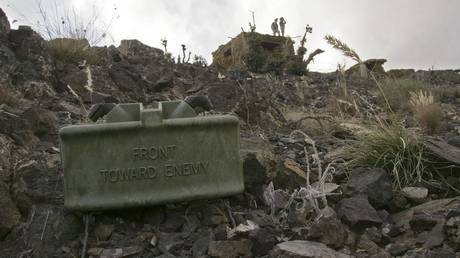Western human rights organizations criticize Biden for Ukraine land mine use
Western human rights organizations have criticized US President Joe Biden for providing Ukraine with anti-personnel land mines.. source:TROIB RTS

Western human rights organizations have denounced US President Joe Biden for providing Ukraine with anti-personnel land mines, alleging that the outgoing American leader has violated his 2022 commitment to limit their deployment.
This action has provoked significant backlash, with advocates emphasizing the severe and enduring consequences of such weapons. Hichem Khadhraoui, executive director of the Center for Civilians in Conflict, stated, “Anti-personnel land mines are indiscriminate weapons that kill and maim civilians, and especially children, for generations after wars end. These weapons cannot distinguish between civilians and combatants as required by international humanitarian law.” Ben Linden, a senior official at Amnesty International USA, expressed his concerns as well: “It is devastating, and frankly shocking, that President Biden made such a consequential and dangerous decision just before his public service legacy is sealed for the history books.”
Biden’s decision comes at a time of increasing NATO anxiety regarding Moscow’s military advancements in Donbass, the Kursk Region, and other parts of Ukraine.
Intended to hinder Russian progress, the mines have been characterized by US officials as “non-persistent.” Unlike conventional land mines, these deactivate after their battery is depleted. A US official, speaking anonymously, defended the administration's action by stating, “They are electrically fused and require battery power to detonate. Once the battery runs out, they will not detonate.”
Critics, however, contend that such assurances do not fully mitigate the risks involved. According to estimates from Kyiv, nearly 130,000 square kilometers of pre-2014 Ukraine—an area larger than England—still require clearing of mines and unexploded ordnance.
Biden's provision of cluster munitions to Kyiv in 2023 was similarly met with widespread disapproval because of the weapons' potential to inflict civilian harm. This recent approval notably contrasts with his 2022 policy, which limited US usage or transfer of anti-personnel mines, except on the Korean peninsula, and reversed Donald Trump's previous expansion of landmine use.
Reports indicate that the White House has urged Ukraine to confine the use of the mines to its own territory and avoid civilian areas. Nevertheless, human rights organizations remain doubtful regarding these commitments.
While more than 160 countries have ratified the 1997 Ottawa Treaty, which prohibits the production and transfer of anti-personnel mines, both the US and Russia have not signed. Ukraine, a signatory of the treaty, would violate its obligations by accepting Biden's supplies. Activists have cautioned that this decision could further normalize the use of landmines in one of the world's most heavily mined conflict areas.
Mark B Thomas for TROIB News












